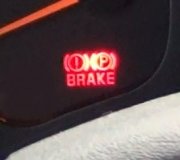I recently replaced the left rear wheel cylinder on my 1998 Oldsmobile Achieva SL and, like an idiot, tried to bleed the brakes without replacing the drum on the outside of the rear wheel assembly. I had also taken the drum off of the right side of the vehicle so I could compare the two sides and ensure that I was putting the left side together correctly. The right rear wheel cylinder burst during the bleeding process. Once again, I replaced the wheel cylinder, but on the opposite side. This time I went to bleed the brakes and noticed that there was little to no pressure building under the pedal. When I turned the car on, the brake lights stayed on and the pedal had to be pulled up and held in this position in order to turn the brake lights off. When the car is off I can build enough pressure in the brake system to bleed the brakes by pulling the brake pedal up and pushing it to the floor. I know that pressure is being maintained in the brake system when the car is off because once the bleeder is loosened, the pedal then sinks all the way to the floor.
So with the car on, I have a useless brake system I can't keep pressure in and the brake pedal sits at half mast with the brake lights on unless I hold it in a fully returned position with my foot. With it off, I can build pressure in the brake system and bleed the brakes, but I have to force the pedal to fully return in order to do so. This was not a problem before I started messing with the rear brake shoe/drum assembly in order to fix this leaky wheel cylinder which has just turned into so many different problems.
Tuesday, July 26th, 2011 AT 4:32 AM


